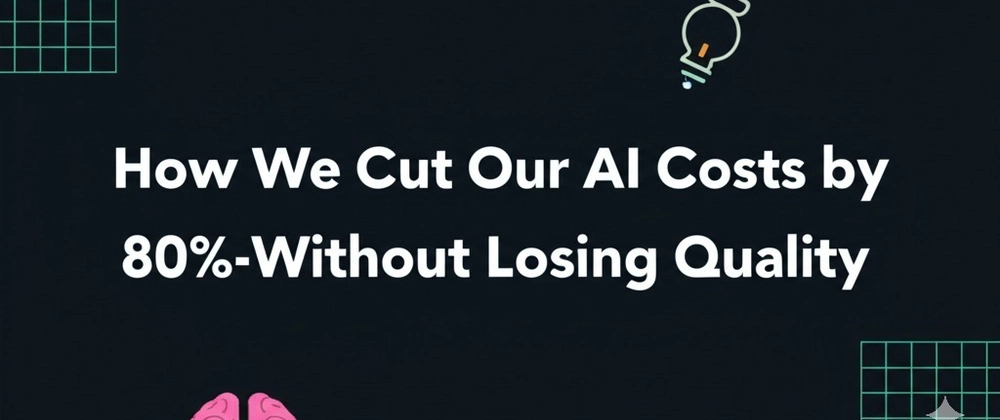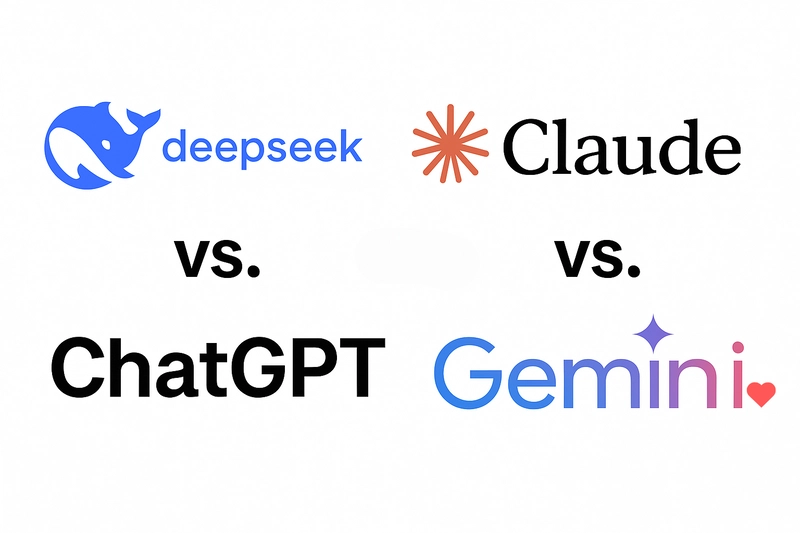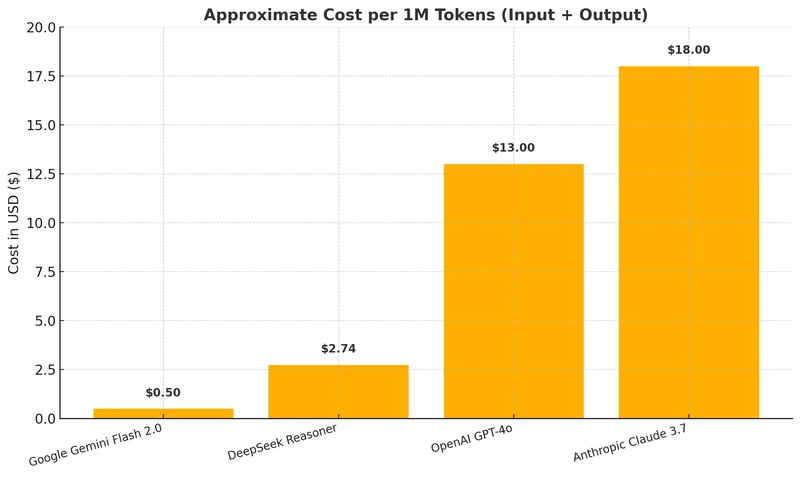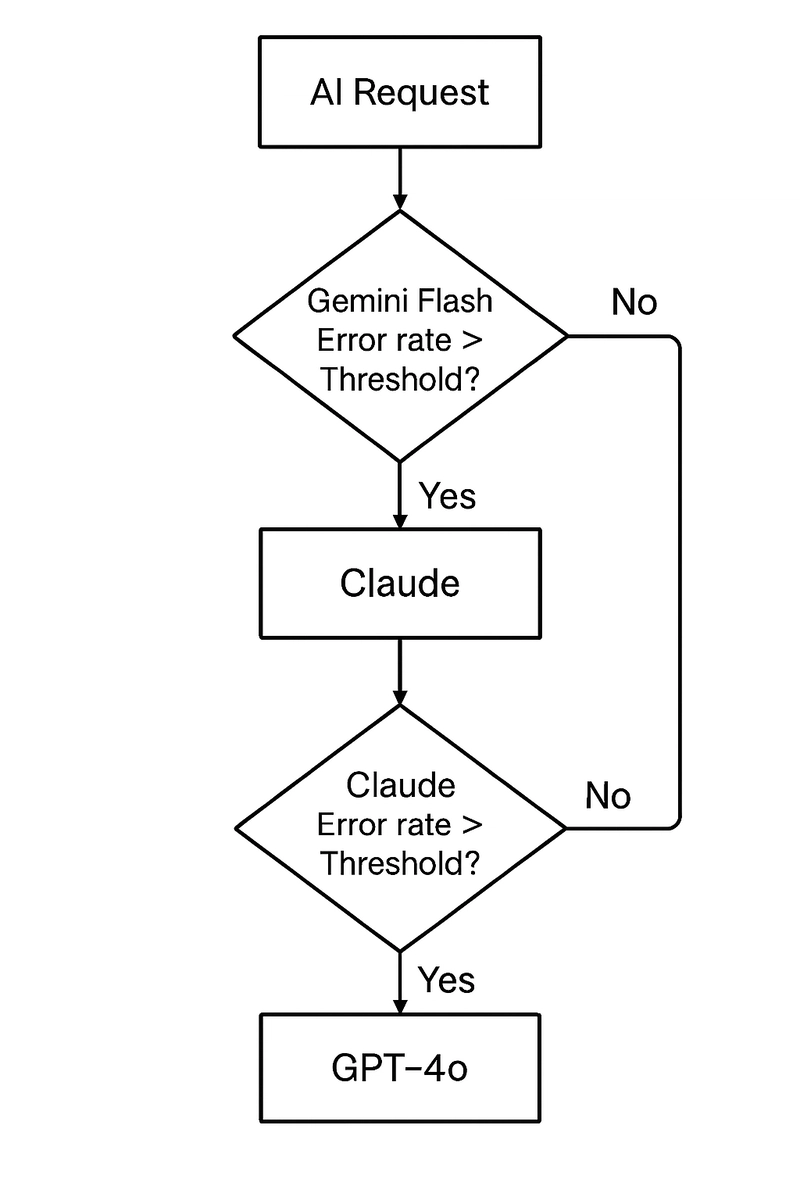When you run a startup, watching your burn rate is as critical as breathing. At CodeDesign.ai, our AI-powered website builder, we found ourselves staring at a monthly AI bill that reached a painful $800.
We weren't doing anything unusual to be honest, but we have a free tier - and most of our cost came at maintaining that free tier. For a bootstrapped founder like myself, every dollar matters, and spending almost a grand monthly just on AI didn't feel right.
🚗 Our Journey Through AI Providers
We've tried almost every AI service out there. GPT-4o had been our go-to for months—powerful, usually reliable, but undeniably expensive. We experimented briefly with Claude, but quickly hit their restrictive Tier 1 limits to test further. Then we moved on to Deepseek. It was promising at first, but frequent downtime was frustrating. And back then they had limited support for tooling & function calling. I think that might no longer the case.
Then, last month, we decided to try Google's Gemini 2.0 Flash, and honestly—it was a breath of fresh air.
♊️ The Gemini Surprise
Gemini Flash surprised us. We initially expected a trade-off—cheaper, sure, but would it match GPT-4o's quality? To our delight, Gemini not only matched GPT-4o—it often exceeded it, especially in terms of responsiveness and overall reliability. Even more astonishing: our monthly bill plummeted from nearly $800 to just $60, an 80% cost reduction.
To put things into perspective, here's a quick cost comparison for leading AI models (approximate combined cost per million tokens, including both input and output):
We experimented with Claude Haiku and Gpt4o-mini, but conversions were subpar and the most of the worst feedback were collected for these two models.
💪🏼 Building a Robust Fallback System
Here's how we made it even better:
We built a simple but effective check algorithm that monitors the number of failed requests per minute. If Gemini Flash experiences any hiccups and the error rate exceeds our threshold, the system automatically switches requests first to Claude (which, despite its limits, works as a reliable backup), and then—if Claude also struggles—falls back to GPT-4o.
This backup system has been flawless, ensuring near-perfect uptime without manual intervention. And thanks to Gemini's impressive reliability, these fallback triggers are rarely activated. We've only seen it kick in a handful of times during traffic spikes, which gives us incredible peace of mind.
Lessons for Other Startups 👀
For anyone running AI-dependent services, here's a takeaway:
Switching to Gemini Flash was one of the best decisions we've made.
We didn't just cut costs—we enhanced reliability and improved our user experience.
It feels almost too good to be true (don’t tell Google we said that!).
My feedback for Google:
Gemini Pro’s limits are tight, and we'd love to see those expanded.
Their current quota system works for us now, but as we scale, I hope they grow with us.
The Bottom Line: Lean Without Compromise
To sum it up, running lean is vital for startups, and sometimes the answer isn't scaling back on quality or features but looking carefully at your tools. AI doesn't have to break the bank, and with the right approach, you might just find a gem (pun absolutely intended).
Have you had similar experiences optimizing your AI expenses? I'd love to hear about your strategies! Drop a comment below or reach out—I'm always game to swap cost-saving hacks with fellow founders in the trenches.






Top comments (0)